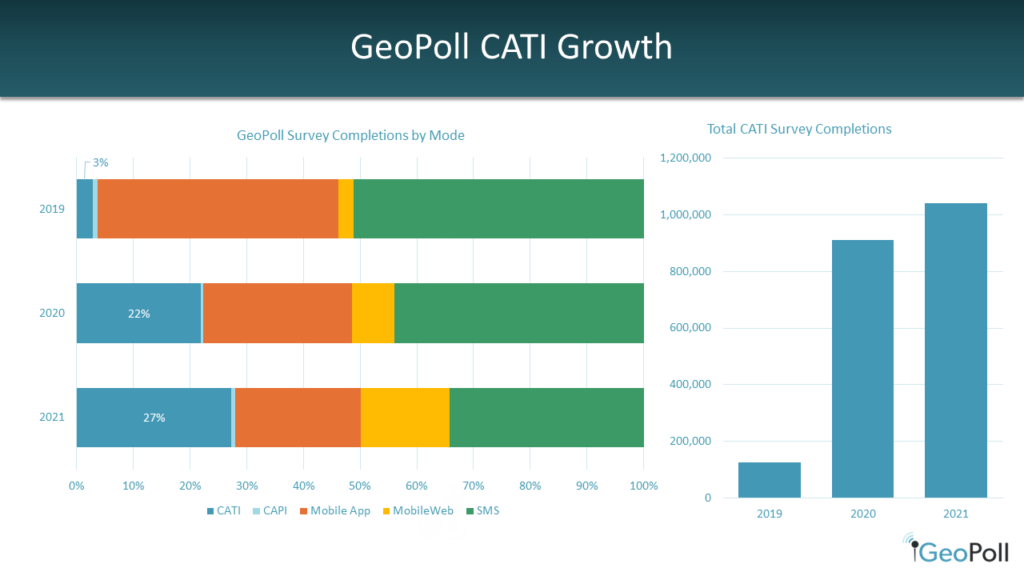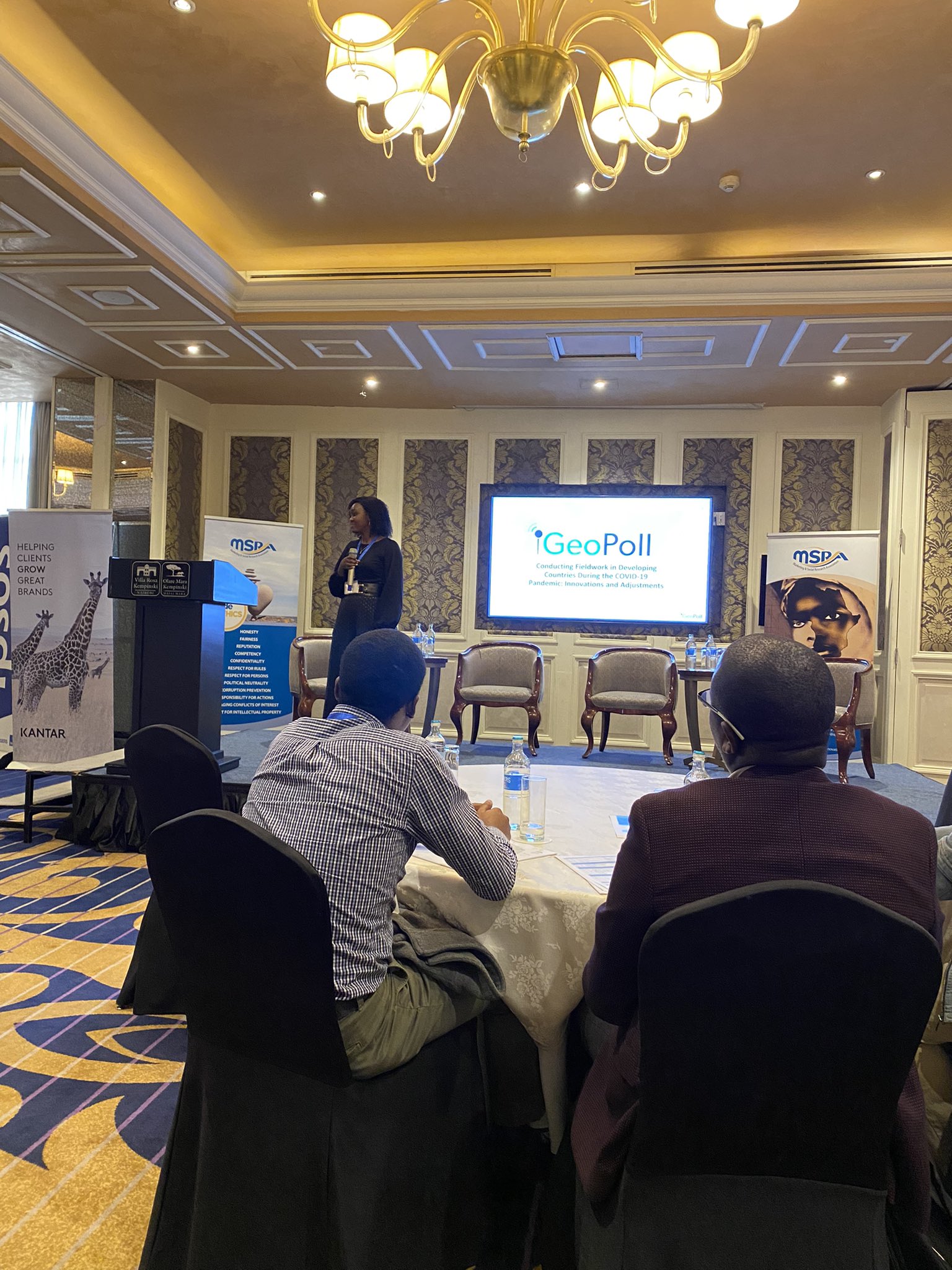- Contents
GeoPoll is an active member of the Marketing & Social Research Association (MSRA) and GeoPoll’s Purity Wanja Njiru was a speaker at the MSRA Conference 2022 held in Nairobi on June 30, 2022. The theme of the conference was Business Agility and Purity made a presentation about the transition to remote data collection due to the COVID-19 pandemic.
This is an abridged version of her presentation.
—
Since the pandemic started in 2020, we have seen considerable shifts toward the use of Computer-Assisted Telephone Interviewing (CATI) with larger and larger segments of our surveys being conducted via phone calls. One of the reasons for this is that with movement curtailed, fieldwork that would normally have been conducted face to face needed to be done remotely. CATI has the closest similarities to in-person surveys.
Transitioning to Remote Call Centers
Centralized call centers come with several benefits. It is easier to manage the team, quality control is done in real-time and resources such as internet connection and devices can be provided. However, with COVID restrictions, most enumerators needed to work remotely and we had to be innovative to ensure that the process was seamless and the data collected was of the high quality that GeoPoll produces. This transition didn’t come without some challenges:
- Remote work is traditionally uncommon in the developing countries where GeoPoll operates
- Many developing areas lack stable power and internet connectivity
- Remote operators must be provided with airtime credits/data to make calls and paid via mobile money
- Lack of in-person supervision/quality control
Despite these challenges, GeoPoll transitioned teams to work remotely without altering the work process, through a series of innovations.
- The GeoPoll Interviewer application was adapted to be used without advanced hardware or even an internet connection
- Simplified the tools so interviewers only needed a charged phone or tablet, the Interviewer App, and daily data connection to work.
- Contingency plans keep data flowing through power outages and other disruptions
- Enhanced quality control checks to address the challenges of remote oversight including random video checks, daily progress monitoring, automated and manual data quality checks, call recording reviews and the creation of GeoPoll’s Quality Control Dashboard.
- More individualized training of enumerators, supervisors, and managers. The trainings also went remote via video calls and detailed documentation.
Other Adjustments and Innovations
- Integration of mobile money for paying remote staff
- Implementation of other remote modes (in addition to CATI) in place of face-to-face research, including WhatsApp surveys, online focus groups and IDIs, MROCs, and live voice calls
- Research determined that sending an SMS notification in advance of CATI calls increases response rates by 15-20%
- To facilitate lengthy surveys originally designed for F2F administration, GeoPoll learned to split the questions into two or more CATI calls over several days
The bottom line: Remote Research is here to stay
It is our belief at GeoPoll that COVID-19 has changed how data is collected, and the shift to remote surveys is here to stay, especially with CATI. Today, GeoPoll oversees call centers in more than 75 countries and makes tens of thousands of calls each week.
As with other changes and trends, either self-initiated or forced such as the COVID-19 pandemic, researchers need to be agile and willing to explore mixed-mode approaches.
GeoPoll had to redevelop the CATI application, enhanced quality control measures, and extensive interviewer training programs to ease the transition to remote call centers. Ultimately, the shift made us better and we are now able to provide data collection services to our clients faster and more affordably.

About GeoPoll CATI Services
GeoPoll administers voice call surveys through our own Interviewer (CATI) mobile application, which is specifically built for use in emerging markets and includes features such as offline capabilities and remote progress tracking. Learn more about our CATI solution here.

